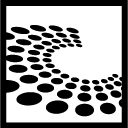ox4 - Final Version
Free Software and Beyond
The World of Peer Production
| Speakers | |
|---|---|

|
Johan Söderberg |
| Schedule | |
|---|---|
| Day | 2 |
| Room | Humanities Bridgeford G6 |
| Start time | 12:00 |
| Duration | 01:30 |
| Info | |
| ID | 22 |
| Event type | Lecture |
| Track | Beyond Free Software |
| Language | English |
Ronja - Darknet of Lights
Homebrewed Anonymous Communication through Free-Air-Optics

Ronja is a hardware project for building interent communication through free-air optics. Unlike most other free hardware projects that still exist only in the planning stage, Ronja hackers have produced a fully operational technology from scratch. The whole development process has taken place among a group of hackers that has been active for more than six years. Their experiences give insights into the challenges that lay ahead of a possibly emergent, hardware hacking movement.
Ronja is a hardware project for building Internet communication by means of free-air optics. It consists basically of a lamp and a receiver mounted on rooftops. When the lamp is on it sends a "1" and when it is off it is a "0". In this way, Ronja "twinkles through" data transmissions at the speed of 10 mb/s and at a maximum distance of 1,4 km. Unlike most other free hardware projects to date that exist only as good ideas, or, in the best case scenario, as a design, Ronja hackers have produced a fully operational technology from scratch. It is probably as close as a hardware hacking project gets to the ideal of a "bazaar" free software development model. The whole development process has taken place outside both academic institutions and firms. The work has been done by a small group of hackers living in the Czech republic and in Switzerland. As a proof of its sustainability, the technology has been developed for more than six years and it has been diffused to a network of users, though mainly concentrated to eastern Europe. I have been staying in the Czech republic during autumn 2008 in order to study the Ronja project. My particular interest has been questions about how they coordinate their development process and how it is economically supported. The last point is key since the initiator, Karel 'CLOCK' Kulhavy, has repeatedly pinpointed at the necessity to earn a living as the main stumbling block preventing faster development of the technology. Hence, it suggests the centrality of the wage form to channell the activity of engineers in the direction of markets, intellectual property etc. Rather than filling a patent to earn money from the innovation, as mainstream economic theory would have it, the czech hackers have tried to establish a system of donations in order to cover the expenses they have had with developing the technology. One could thus look upon the Ronja project as an intervention creating not just a new gadget, but a different economic model for innovation that enables hacker-engineers to do what they love and release the result under a free license. Of course, the actual project has run into many practical difficulties and ambiguities. From a theoretical/ideological point of perspective, it is possible to raise concerns that this entreprenueral form of self-organisation, though it testifies to an attempt to escape the boredome of the office job, could pave the way for a post-Fordist restructuring and new, precarious forms of self-employement. Such critique nonewithstanding, the expriences of Ronja hackers give insight into the possibilities and obstacles that are likely to confront a future, free hardware movement.
